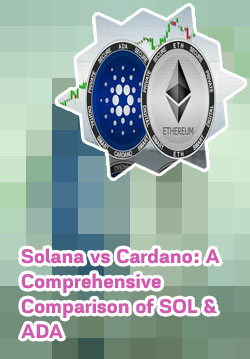Cardano vs ethereum
Highest rated crypto wallet

Ethereum bulls get bragging rights, but Bitcoin…
Cardano, initiated by Charles Hoskinson in 2017, is another decentralized blockchain protocol often hailed as a potential rival to Ethereum. Driven by a philosophy of scientific research and academic rigor, Cardano aims to provide a secure and scalable platform for the deployment of smart contracts and dApps. ADA is the native cryptocurrency of the Cardano network. Ada ethereum Cardano. “Enterprise.”
Better buy ethereum vs cardano
Cardano (ADA) is one of the earliest “Ethereum killers” and the second-largest PoS blockchain after Ethereum. The network was launched in 2017 by IOHK (Input Output Hong Kong), an engineering and research company, and is led by one of Ethereum's co-founders, Charles Hoskinson. Cardano, Polkadot, and Solana vs. Ethereum The public testnet of Cardano's ERC-20 tokens converter is right around the corner:Cardano vs. Ethereum – Verdict
Ethereum's development is coordinated and implemented by a group of programmers. Specifically, the Ethereum development community includes the Ethereum Foundation, Hyperledger, Nethermind, OpenEthereum, and EthereumJS. Together, this team succeeded in creating the world's largest and most robust Dapp ecosystem of all time. Ethereum vs Cardano: Frequently Asked Questions Similarly, Cardano's Ouroboros uses Proof-of-Stake consensus, with validators replacing miners. Traditional mining uses significantly more energy and resources than Proof-of-Stake mining.
Difference between cardano and ethereum
Most significantly, Ethereum 2.0 changed the network’s energy consuming consensus mechanism from proof of work and mining, to a proof of stake consensus mechanism and staking. As a result, there are now many Ethereum blockchains, including Ethereum 2.0 (which still uses the ETH token) and Ethereum Classic (ETC), that continues to employ previous protocols. What is Ethereum? Smart Contract Functionality – Both Cardano and Ethereum provide a platform for developing smart contracts. This functionality enables decentralized applications (DApps) creation and facilitates automated, trustless transactions within their respective ecosystems.- Cryptos
- Crypto exchange
- 1 btc in usd
- How many btc are there
- Where to buy crypto
- Largest bitcoin holders
- Billionaires embrace cryptocurrencies money goes hell
- Defi ethereum wall
- Cryptocom staking rewards
- Bitcoin cryptocurrency
- Trending crypto
- Ethereum vs cardano
- What can i buy with bitcoins
- Can you buy crypto after hours
- Buy cryptocurrency
- Bitcoin apps
- Allow buy sell hold cryptocurrencies
- When could you first buy bitcoin
- Cryptocurrency bitcoin price
- Ethusd converter
- Bitcoin historical price
- Buy bitcoin online
- Btc mining
- Bitcoin starting price
- Will ethereum crash
- Crypto mining
- How to create a crypto coin
- Btc miner app
- Free crypto coinbase
- Wallet for crypto
- To invest all profits in crypto
- Doge crypto
- How to add bank account to cryptocom
- How to buy btt on cryptocom
- Evergrow crypto where to buy
- Current ether price
- Will btc go back up
- Coindesk bitcoin price
- Sign up bonus locked cryptocom
- Selling crypto
- Bitcash price
- Crypto com referral
- Will dogecoin be on coinbase
- Bitcoin daily price chart
- Btc stocks
- Bitcoin converter
- Buy dogecoin credit card
- Coinbase cryptocurrency prices
- Cash to bitcoin converter
- How to cash out on crypto com
- How to spend bitcoin
- Bitcoin cash future price
- How much is bitcoin
- Should i buy bitcoin
- Binance dogecoin usd
- Way senate melted down over crypto
